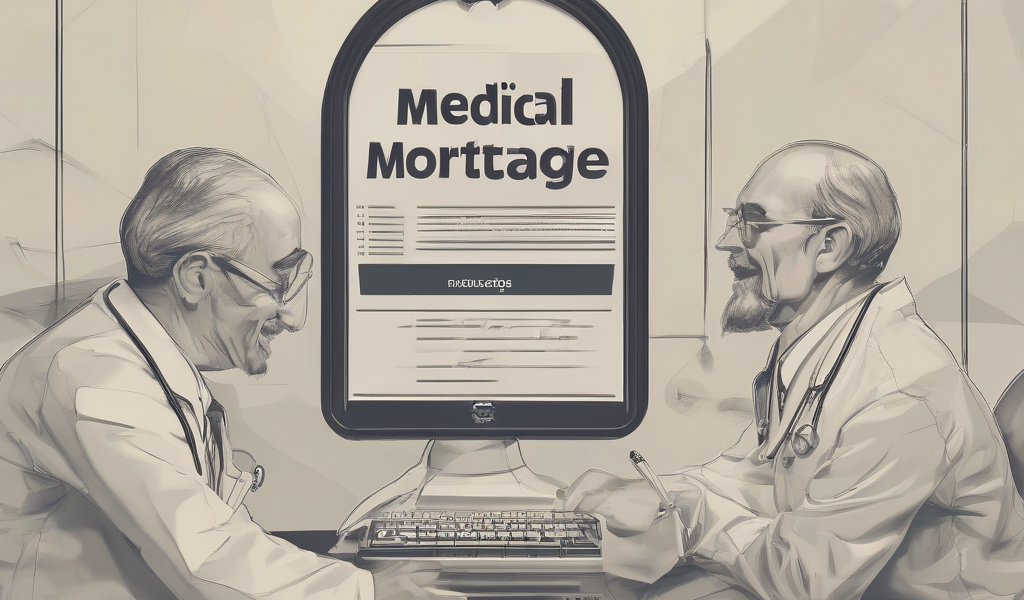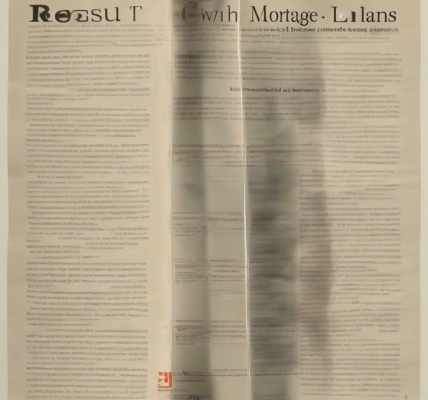Navigating the Physician Mortgage Loan Landscape: A Comprehensive Guide
The journey to homeownership is a significant milestone for anyone, but physicians face a unique set of circumstances that require a specialized approach to mortgage financing. Physician mortgage loans are designed to address the specific financial profiles of doctors, often offering advantages unavailable through traditional lending channels. This comprehensive guide will delve into the intricacies of physician mortgages, exploring their benefits, eligibility requirements, and the process involved in securing this type of financing.
Understanding the Unique Needs of Physicians
Physicians, while often high-earners, have financial profiles that differ from those of other professionals. Their income may fluctuate during residency or fellowship, and significant student loan debt is frequently a major factor. Traditional lenders may struggle to fully assess their earning potential, leading to difficulties in securing a mortgage based solely on current income. This is where physician mortgage loans provide a crucial advantage.
- High Student Loan Debt: Medical school and residency involve substantial financial investment. Physician mortgage lenders understand this and often account for student loan debt in their underwriting process, providing flexibility not found in standard mortgages.
- Variable Income During Residency/Fellowship: Income during training periods may be lower than post-residency earnings. Physician mortgages can often accommodate this variability by focusing on future earning potential.
- Delayed Income Growth: The full financial benefits of a medical practice often take time to materialize. These loans recognize this and offer structuring that aligns with a physician’s career progression.
- Specialized Financial Needs: Physicians may require mortgages tailored to their specific situations, such as those accommodating unique tax situations or investment properties.
Benefits of Physician Mortgage Loans
The advantages offered by physician mortgages extend beyond simply accommodating unique financial profiles. These loans can significantly improve the home-buying experience for physicians.
- Higher Loan Amounts: Lenders often offer higher loan-to-value (LTV) ratios, enabling physicians to secure larger mortgages and purchase more expensive homes.
- Flexible Underwriting: The underwriting process often considers future income potential, reducing the impact of current debt or variable income.
- Competitive Interest Rates: While not always guaranteed, lenders frequently offer competitive interest rates to attract high-earning physicians.
- Faster Loan Processing: Some lenders specialize in physician mortgages and streamline the application process for a quicker closing.
- Personalized Service: Lenders often assign dedicated loan officers who understand the nuances of physician finances and provide customized support throughout the process.
Eligibility Requirements for Physician Mortgages
While physician mortgages offer more flexibility than traditional loans, certain requirements still need to be met to qualify. These requirements usually include:
- Proof of Physician Licensure: Applicants must provide evidence of their medical license and board certification.
- Documentation of Income: This typically includes tax returns, pay stubs, and employment contracts. Future income projections may also be considered.
- Credit Score: While the minimum credit score may vary, a higher credit score generally improves chances of approval and secures better interest rates.
- Debt-to-Income Ratio (DTI): Lenders assess the applicant’s debt obligations relative to their income. While DTI requirements are more flexible with physician mortgages, a lower DTI usually strengthens the application.
- Down Payment: While down payment requirements can be negotiated, a larger down payment often leads to more favorable loan terms.
- Verification of Assets: Lenders need to verify the applicant’s assets to ensure they can meet their financial obligations.
The Physician Mortgage Loan Application Process
Securing a physician mortgage involves several steps, often similar to the standard mortgage process, but with some key differences.
- Pre-qualification: This initial step involves providing basic financial information to receive an estimate of how much you can borrow. This doesn’t involve a hard credit check.
- Loan Application: A formal application is submitted, requiring detailed financial documentation, including tax returns, pay stubs, and student loan information.
- Loan Underwriting: The lender assesses the applicant’s creditworthiness, income, and debt obligations, focusing on future earning potential. This is where the flexibility of physician mortgages shines.
- Property Appraisal: An independent appraisal is conducted to determine the fair market value of the property being purchased.
- Loan Closing: Once all requirements are met, the loan is finalized, and funds are disbursed to complete the property purchase.
Choosing the Right Lender for Your Needs
Selecting the right lender is crucial for a smooth and successful mortgage application. Consider these factors when making your choice:
- Experience with Physician Mortgages: Opt for lenders with a proven track record of working with physicians and understanding their specific financial circumstances.
- Competitive Interest Rates and Fees: Compare rates and fees from multiple lenders to find the most favorable terms.
- Customer Service and Responsiveness: Choose a lender that provides excellent customer service and responds promptly to inquiries.
- Transparency and Communication: Look for a lender that is transparent about the loan process and keeps you informed every step of the way.
- Loan Terms and Conditions: Carefully review the loan terms and conditions before signing any agreements.
Strategies for Improving Your Chances of Approval
Taking proactive steps to improve your financial standing can significantly increase your chances of securing a physician mortgage.
- Improve your Credit Score: Work towards improving your credit score by paying bills on time and managing debt effectively.
- Reduce Your Debt: Lowering your debt-to-income ratio will improve your chances of approval and potentially secure better interest rates.
- Save for a Larger Down Payment: A larger down payment can reduce the loan amount needed and improve your chances of approval.
- Gather Thorough Financial Documentation: Organize all relevant financial documents beforehand to streamline the application process.
- Shop Around for the Best Rates: Compare offers from multiple lenders to find the most favorable terms.
Understanding Different Types of Physician Mortgages
Several types of physician mortgages cater to diverse needs and circumstances. These may include:
- Fixed-Rate Mortgages: These offer consistent monthly payments throughout the loan term.
- Adjustable-Rate Mortgages (ARMs): Interest rates can fluctuate during the loan term, potentially leading to lower initial payments but greater risk of increasing payments.
- FHA Loans: These are government-insured loans, often requiring lower down payments but potentially higher interest rates.
- VA Loans: Offered to eligible veterans, these loans may require no down payment but have other eligibility requirements.
- Jumbo Loans: These loans exceed conventional loan limits and are often used for higher-priced properties.
Beyond the Mortgage: Financial Planning for Physicians
Securing a mortgage is just one aspect of sound financial planning for physicians. Consider these additional elements:
- Student Loan Repayment Strategies: Develop a comprehensive plan to manage and repay student loan debt.
- Investment Strategies: Explore investment options that align with your financial goals and risk tolerance.
- Retirement Planning: Start saving early for retirement and consider various retirement savings vehicles.
- Tax Planning: Consult with a tax professional to optimize your tax situation.
- Estate Planning: Develop an estate plan to ensure the protection of your assets and the well-being of your family.




